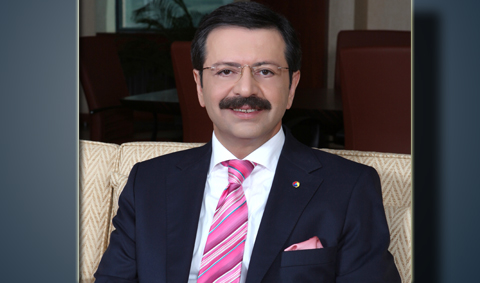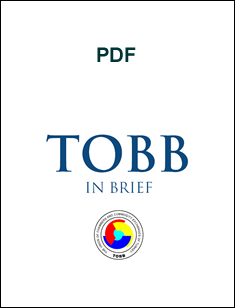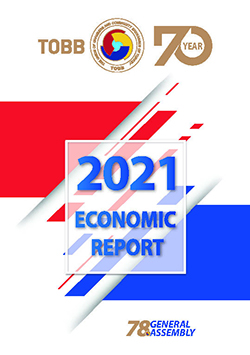“Agreement for the Facilitation of Trade” will stop declining trade

13.01.2015 / Ankara
Assessing the fact that, in three months, the Agreement for the Facilitation of Trade, the WTO’s first comprehensive trade reform according to the 2016 Action Plan, will be presented to the Great National Assembly of the Republic of Turkey (TBMM), TOBB President M. Rifat Hisarcıklıoğlu said, “The agreement which will enter into effect once it has been ratified by two thirds of WTO members can be considered a milestone in stopping the declining trade figures.”
Turkey has scheduled the ratification period for the World Trade Organization’s (WTO) Agreement for the Facilitation of Trade which is considered to be its first comprehensive trade reform and one of the business community’s most important priorities.
According to the 2016 Action Plan announced by Prime Minister Ahmet Davutoğlu, the Agreement for the Facilitation of Trade which aims to minimize the customs procedures and the resulting costs encountered between December 21st and March 21st will be presented to the TBMM.
- “The agreement will stop declining trade”
In his assessment of the agreement, the Union of Chambers and Commodity Exchanges of Turkey President M. Rifat Hisarcıklıoğlu said stated that global trade is undergoing a period of shrinkage and that the average 4% growth of the global economy has declined in recent years.
“This decline in trade is unfortunately resulting in an increase in protective policies,” said Hisarcıklıoğlu and stated that the Agreement for the Facilitation of Trade which will enter into effect once it has been ratified by two thirds of WTO members can be considered a milestone in stopping the declining trade figures.
Stating that according to the 2016 Action Plan, Agreement for the Facilitation of Trade will be presented to the Great National Assembly of the Republic of Turkey (TBMM) is very encouraging, Hisarcıklıoğlu said, “It is a source of pride for the Turkish business community that Turkey will lead the way for other countries in implementing this agreement.”
With the implementation of the agreement by WTO member states, foreign trade and logistics infrastructure will be strengthened via IT and automation - chief among the issues being customs procedures – thus greatly facilitate commerce.
Reducing bureaucratic clutter, removing customs limitations of industrialized countries for other countries while they enact subsidization for themselves are among the agreement’s goals.
According to research conducted by OECD, the implementation of measures to facilitate trade will result in 17% savings in operation costs. Every 1% progress in regards to trading costs is expected to provide an extra income of 40 billion USD into the world economy.
The implementation of the agreement would generate 21 million new jobs with 18 million of these in developing countries; going so far as to increase global GDP total by 1 trillion USD.
Your message has been sent
Thank you |




